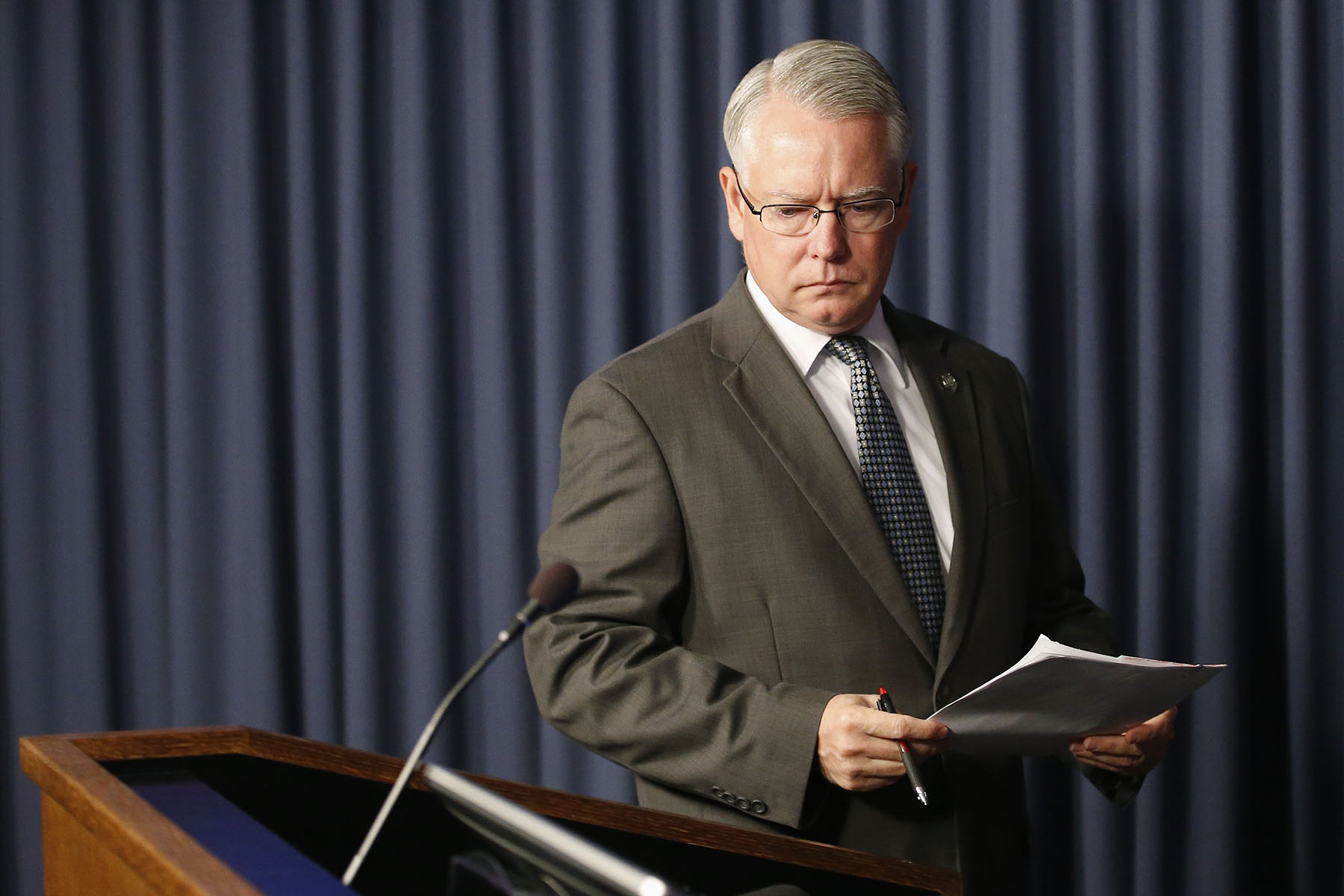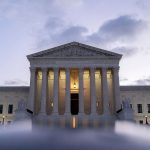This story was published in partnership with the Arizona Mirror, an independent, nonprofit news organization that covers Arizona government and politics and is an affiliate of States Newsroom, a national 501(c)(3) nonprofit supported by grants and a coalition of donors and readers.
A justice on the Arizona Supreme Court — which this winter could decide whether the state can enforce a near total ban on abortion — has repeatedly expressed his opposition to the procedure and received campaign support from a prominent state anti-abortion activist, according to materials reviewed by The 19th.
Experts told The 19th that his past comments could be grounds for him recusing himself from the abortion-ban case, which he has not done.
The justice, Bill Montgomery, joined the Arizona Supreme Court in 2019 after serving nine years as the Maricopa County attorney. In a now-deleted 2017 Facebook post, he said Planned Parenthood “is responsible for the greatest genocide known to man,” which was reported by the Phoenix New Times in 2019. Planned Parenthood is the organization challenging Arizona’s law.
In 2012, while defending a 20-week abortion ban, Montgomery argued that abortion should be totally banned, citing “the inherent human dignity in a life at the moment of conception,” remarks reported in the East Valley Tribune. In 2015, he spoke at a protest outside of a Phoenix Planned Parenthood clinic, telling The Catholic Sun that “the unborn are entitled to the same degree of protection as anyone else.”
In 2016, Montgomery also received a $1,000 donation from Cathi Herrod, the head of as anti-abortion organization Center for Arizona Policy, which was disclosed in a campaign finance report. The Center for Arizona Policy filed an amicus brief supporting the near total ban in the state Supreme Court case.
Montgomery is one of seven justices on the state’s high court, which in December will hear oral arguments over whether a total abortion ban passed in 1864 still has legal force, or whether it was implicitly repealed when the state instituted a 15-week ban in 2022. The Arizona Supreme Court did not respond to a request for comment.
The state’s code of judicial conduct holds that members of the court must recuse themselves from cases “in which the judge’s impartiality might reasonably be questioned.” But in reality, few state justices follow this sort of protocol, especially when abortion is involved, said Mary Ziegler, an abortion law expert at the University of California, Davis. With Montgomery, Ziegler said someone could reasonably doubt the judge’s ability to be unbiased.
“There’s lots of precedent for judges who have a track record for being strongly, openly opposed to abortion of not recusing,” she said. “State supreme courts are political actors in a way other judges are not.”
Still, Montgomery’s remarks are noteworthy, said Meriam Seifter, a professor of law at the University of Wisconsin-Madison, pointing to his specific remarks against Planned Parenthood. That specific public animus toward a party in the case, rather than toward abortion in general, could strengthen the argument in favor of his recusal.
But, she said, “whether it crosses the line would be a judgment call — typically one for the justice to make.”
Arizona briefly allowed the total abortion ban to take effect last fall, based on a since-blocked ruling by a state judge. Currently abortion is legal up to 15 weeks of pregnancy.
With the federal right to an abortion overturned, state supreme courts have become incredibly influential in determining whether individual abortion bans can take effect. The shift has put far more focus on individual justices’ views on the procedure.
In Florida, the state Supreme Court is deliberating whether to uphold a 15-week ban and potentially eliminate the state’s constitutional abortion right protection. One justice, Charles Canady, is married to a lawmaker who co-sponsored the state’s six-week abortion ban. Canady, a former member of Congress, also developed a 1995 bill that would have banned a type of abortion known as dilation and excavation. The bill was vetoed by President Bill Clinton.
In Ohio, where the Supreme Court is weighing the constitutionality of a six-week ban, Justice Pat DeWine is the son of Republican state Gov. Mike DeWine, who signed that very bill into law in 2019. DeWine is also one of three sitting Ohio Supreme Court justices who, in March 2022 — months before Roe v. Wade was overturned — said in judicial candidate questionnaires by the organization Cincinnati Right to Life that the U.S. Constitution did not include a right to an abortion, statements that prompted criticism from Ohio legal ethics scholars. The same three justices also agreed with a statement from Cincinnati Right to Life suggesting that life begins “at fertilization.”
And in Wisconsin, Justice Janet Protasiewicz ran for her judicial spot while making clear that she supported abortion rights. The Wisconsin Supreme Court will likely weigh in on whether that state’s 1849 abortion ban, which the state enforced for about 15 months, can take effect. State Republicans considered impeaching Protasiewicz over separate comments about redistricting, another issue the Wisconsin Supreme Court will soon address.
“A reasonable person in all of these contexts might doubt the impartiality of the judge, including in Wisconsin,” Ziegler said.
That so many state justices have expressed their own views on abortion is unsurprising, said Michael Dorf, a constitutional law scholar at Cornell Law School. State supreme court members are often elected by popular vote. (In Arizona, they are nominated by the governor but voters then decide whether to retain them.) That means that they are more likely to express their own political and ideological concerns.
“This is an inevitable consequence of the fact that our courts make decisions that are politically salient, and that there are inputs from the political system into the selection of the judiciary,” he said.







